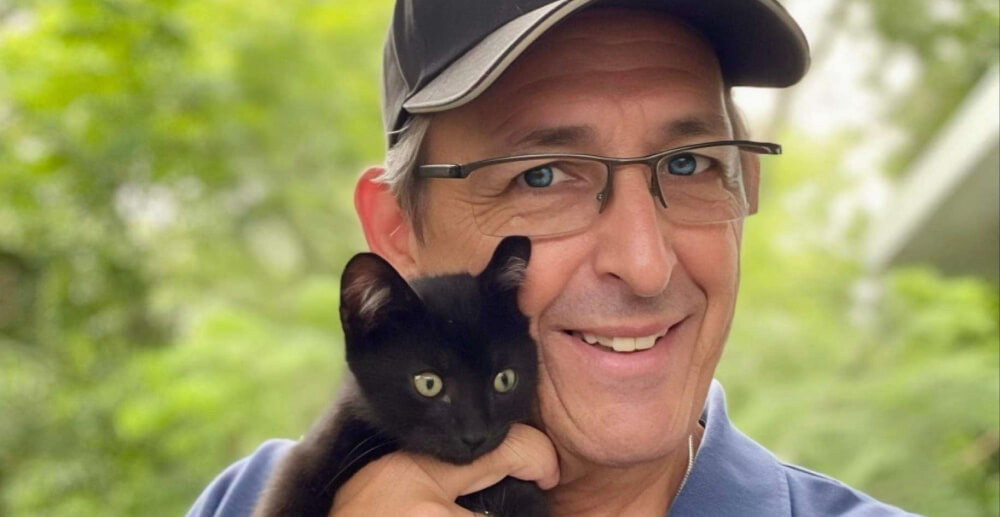A great joy of my clean time has been discovering true satisfaction.
It’s not that I wasn’t ever happy while high. It’s just that there’s a big difference between satisfaction and happiness. In fact, getting high produces a sort of happiness. It’s instantaneous and satisfying like microwavable dinners. It works—for a while. I craved that temporary release from misery, that brief sojourn in happy land. Drugs take you there, only your stay shortens with each trip, and your longing to return becomes crippling.
Cravings took me to selfish places. It’s hard to think of others while jonesing. All that matters when you are in that place is the next fix. It’s helpful for me to understand addiction as an illness, and one of the symptoms is extreme selfishness. If I am sick with selfishness, I can get better. If I think of myself as a selfish person, I wallow in shame.
My happy spells while high got shorter and shorter, and I thought of others less and less in the intervals between fixes. I became alienated from others. And what I’d like to get across to anyone reading this article is that real satisfaction comes from engaging with others, participating in relationships, developing empathy and selfless love.
“Recovery has taught me the difference between isolation and solitude, between happiness and contentment.”
It’s not as if I got clean and sober to become everyone’s best friend. Not even close. The first thing I had to do in sobriety was learn to be my own friend, my own ally and advocate. While I know this is not everyone’s journey, I first learned to love others by loving myself. To love oneself means to care for one’s body, mind, and spirit.
I learned the joys of the solitary: reading, writing, meditating. It was then that I discovered why I had needed drugs and alcohol in the first place. Substances gave me permission to be myself. And so I found them necessary in order to be around others. I didn’t know who I was. As a result, I tried to be many different things to many different people.
“While drinking and using, I reveled in being alone. It was permission to use how I wanted without anyone judging me for it. The exact opposite is true in sobriety. I have learned to genuinely enjoy the company of other people.”
I could have been in a room with my closest friends and family, and still felt a great distance between myself and the world around me. It felt like I was a spectator in my own life.
Discovering solitude and learning to love myself happened in early recovery. I could hole up alone all day, reading and writing, not caring for the world outside.
Now eleven years sober, I have made a new revelation: I enjoy the company of other people. As proof, here’s a recent story: My family was away last weekend. In my mind, it had the makings of a glorious time. I would go to a coffee shop and read, maybe write a little. I was in the middle of a great book, the biography of Frederick Douglass by David Blight.
Only two hours after their departure, I found myself wishing I made plans with friends. I most wished, actually, that I could someone interesting, someone who could tell me their story, whatever it was.
While drinking and using, I reveled in being alone. It was permission to use how I wanted without anyone judging me for it. The exact opposite is true in sobriety. I have learned to genuinely enjoy the company of other people.
Recovery has taught me the difference between isolation and solitude, between happiness and contentment.
“In addition, recovery has taught me that no matter how lofty my goals and ambitions become, ultimate fulfilment comes from service to others.”
Contentment, in my opinion, does not come easily. It’s difficult to foster satisfaction. It requires doing the uncomfortable thing. One of my pet spiritual theories is that, when presented with a dilemma, God’s will for me is the more difficult decision. In practical terms, this means picking up the phone and making the call, going to a recovery group when I am dog tired, relinquishing my pride by telling the truth. Recovery has taught me to enjoy these practices, to stop settling for what makes me comfortable and happy in the moment.
It’s not as if doing the right thing has cured me of my addiction. If a fix is understood as a fixation, I am still very much addicted. Only I jones after different results.
I’ve developed, for example, a sick obsession with finishing things. I loathe to leave a job undone. This comes at a cost. Mainly, my agenda takes charge. I become obsessed.
This is especially true when I work with my hands. I’m not satisfied until the job is completely finished.
In this way, I have been able to use my addictive behavior—a trait most perceive as debilitating—to my advantage. This is not a perfect course to take. I have long accepted that my struggles for perfection, praise, and acceptance are all a part of my curious mental makeup. What helps is using this self-knowledge to set my sights on substantive results.
“Without recovery, without my life as a clean and sober man, I would not know this unique brand of joy. ”
In addition, recovery has taught me that no matter how lofty my goals and ambitions become, ultimate fulfilment comes from service to others. The more I realize this, the more I grow and cultivate the spiritual nature within. After exhausting all my attempts at self-fulfillment, it is when I pick up the phone and call some newcomer in recovery that I feel restored.
My children have helped me learn a great deal on this subject. When taking my son to his first movie theater experience, I observed that it was more fun for me to watch him enjoying the movie than to sit and try to enjoy the movie myself. That thrill—the full and complete investment in another person—is a major departure from the misery of selfishness that I once knew.
Without recovery, without my life as a clean and sober man, I would not know this unique brand of joy.
It’s as if all my attempts for self-improvement failed me until I stopped focusing on the results, stopped jonesing for that fix. Focusing instead on my actions and behaviors bring about the results I had always been after in the first place.
From one vantage point, not a lot has changed since my drinking days: I continue to seek out what makes me feel good. Only in recovery, in sobriety, I make sure that the things I am seeking give me a long-term enjoyment, not a quick fix. I am still hooked on a feeling, but now I know that the best feeling is self-esteem. And to acquire self-esteem, I must do esteem-able things.




